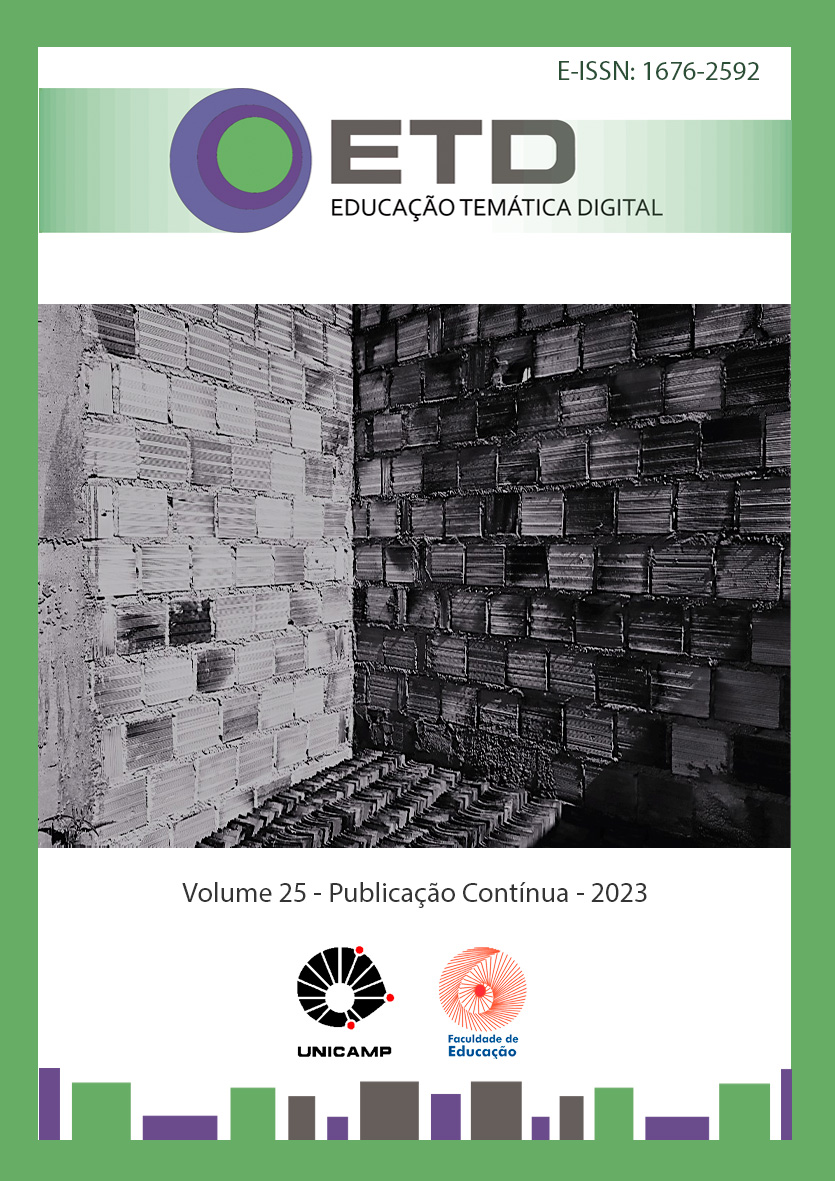Abstract
Problem-solving skills are increasingly important in today's society. With the development of Computing, new processes have emerged to improve this capacity, involving the critical, creative and strategic ability to use its fundamentals and, particularly, programming in different areas of knowledge. This article accompanies the process of implementing a university extension project aimed at programming teaching to children in a class of the 1st year of Elementary School. It shows the work of this group in its first forays into programming with the aid of digital games, more precisely with The Hour of Code, with the aim of reflecting on the possible specificities in an initial pedagogical approach with that platform. It is supported by the ideas of Wing (2006), Belloni (2005), Gomes (2016), Prensky (2012), Veen and Vrakking (2009), also considering qualitative research (BOGDAN, BIKLEN, 1994) and the use pedagogical intervention (THIOLLENT, 2000). It presents, as a research problem, the fact that children beginning to teach and learn programming demonstrate operational difficulties, considering it difficult to run the games on the platform, which generated obstacles and discouragements. It proposes didactic-pedagogical strategies, considering the training needs of the group. As a result, he realizes the importance of adopting specific methodological approaches for a programming audience, seeing in the strategies the possibility of facilitating the understanding of the processes generated and the pleasure of experiencing contact with the games.
References
BELLONI, Maria Luiza. O que é mídia-educação? São Paulo: Autores Associados, 2005.
BOLLER, Sharon; KAPP, Karl. Jogar para aprender - tudo o que você precisa saber sobre o design de jogos de aprendizagem eficazes. São Paulo, SP: DVS, 2018.
BOGDAN, Robert. C.; BIKLEN, Sari. K. Investigação qualitativa em educação: uma introdução à teoria e aos métodos. Porto: Porto Editora, 1994.
CIEB – Currículo de Tecnologia e Computação da Educação Infantil ao Ensino Fundamental. 2018. Disponível em: http://curriculo.cieb.net.br Acesso em: 20/01/2021.
FANTIN, Monica. Mídia-educação: aspectos históricos e teórico-metodológicos. Olhar de professor, Ponta Grossa, 14(1): 27-40, 2011.
FOUCAULT, Michel. Então é importante pensar? Michel Foucault (Entrevista). Trad. Wanderson Flor do Nascimento. In: FOUCAULT, Michel. Dits et écrits. Paris: Gallimard, 1994.
MARINHEIRO, Fabiana. et al. Ensinando crianças do ensino fundamental a programar computadores com o auxílio de jogos digitais. Revista Tecnologias na Educação, v. 12, p. 1, 2016.
RÊGO, Maria Carmem Freire Diógenes. Currículo em movimento. Caderno Faça e Conte, Natal, v. 2, ano 2, p. 61-82, 1999.
THIOLLENT, Michel. Metodologia da Pesquisa-ação. São Paulo: Cortez, 2000.
WING, Jeannette. Pensamento computacional: um conjunto de atitudes e habilidades que todos, não só cientistas da computação, ficaram ansiosos para aprender e usar. Revista Brasileira de Ensino de Ciência e Tecnologia. Ponta Grossa, v.9, p. 1-10, maio/ago.,2016.

This work is licensed under a Creative Commons Attribution-NonCommercial-NoDerivatives 4.0 International License.
Copyright (c) 2023 ETD - Educação Temática Digital


